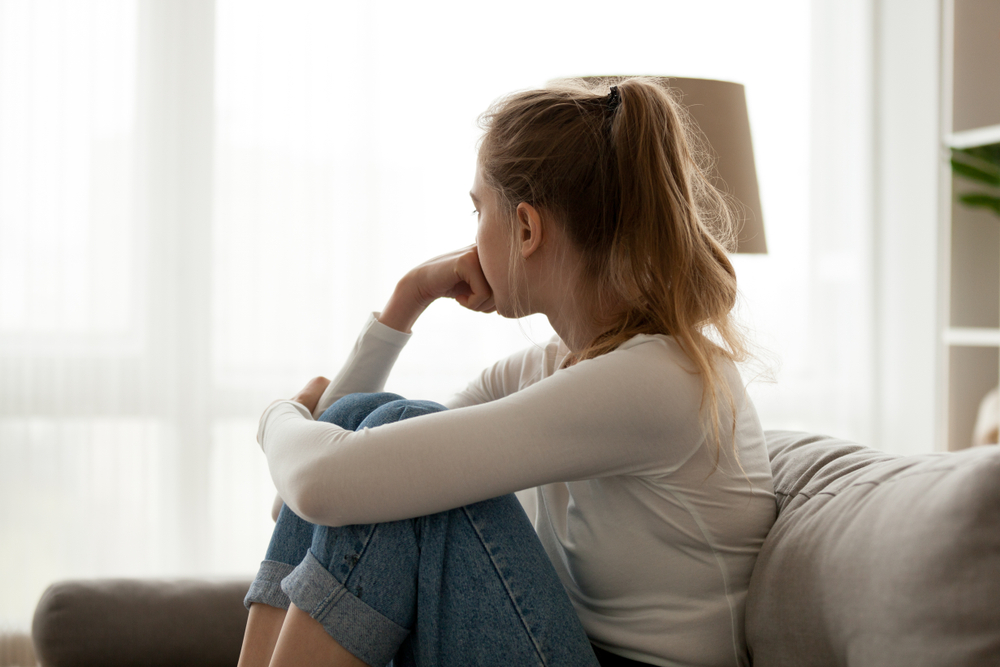
Your hormones influence all areas of your body – from your brain and mental health to your monthly cycle to your digestive system, they’re chemical messengers that get involved with almost everything. Because of this, if there are any issues with your hormones, you’re likely to start feeling the effects pretty quickly, even if you don’t know what the root of the issue is. Hormonal changes during menstrual cycle but also lack of hormones during perimenopausal and menopause period can impact physical and mental health.
Symptoms can occur quickly and can significantly affect your routine and day to day life. This is also why it’s so important to pay attention to your hormone health – if you’re taking care of your hormones, you’re taking care of yourself!
Hormones and anxiety are linked – if you suffer from a hormone imbalance, there’s a good chance that you’ll have experienced symptoms of hormone-related stress and anxiety. Heart palpitations, feelings of dread and doom, trouble going out and interacting with the world and the people in it, ‘the shakes’, feelings of isolation – knowing the cause doesn’t make the effect any less troubling.
Thankfully, if your anxiety is related to your hormones, either in part or entirely, there are steps you can take to combat it. Firstly, let’s explore how anxiety and hormones are related…
Hormones and Anxiety – What is the link?
Particularly for women, the monthly cycle, and the hormone fluctuations occurring during ovulation and luteal phase, can greatly impact anxiety levels (FYI, men have a hormonal cycle as well, but it repeats over 24 hours rather than monthly).
Therefore, women tend to be more anxious than men, and this is partly hormone related. Firstly, low levels of testosterone can increase anxiety levels, and in general, women have lower levels of testosterone than men. Further, monthly menstruation means that your levels of oestrogen and progesterone fluctuate – typically, oestrogen levels are higher in the first two weeks of your cycle, which can increase production of serotonin (also known as the happy hormone).
In the second half of your cycle, after ovulation, progesterone levels rise – progesterone stimulates the amygdala, the part of your brain responsible for the fight-or-flight response, and triggering it can make you feel both anxious and depressed.
Different menstrual disorders can also impact levels of hormone production. For example, endometriosis can impact your levels of cortisol, which is one of the main stress hormones.
There’s a fine line between stress and anxiety, and overproduction of, or prolonged production of cortisol can easily change the balance from a reasonable stress response to persistent anxiety without a cause. When your cortisol levels are increased, you may notice symptoms like:
- Digestion issues and weight fluctuations
- Headaches
- Sleep problems
- Difficulty concentrating
- Fatigue
It’s not just your hormonal cycle that can impact your stress levels. Thyroid hormones also play a significant role in anxiety. Typically, increased levels of anxiety are related to hyperthyroidism, and depression is related to hypothyroidism. However, it’s important to remember that human bodies are complicated, and lots of different elements come into play when considering mental health.
How to handle your hormones
Unfortunately, both hormones and anxiety are two very complicated medical issues. It’s also important to note that anxiety is not necessarily something you can solve or fix. There are certainly steps that can be taken to combat your symptoms, and it’s always worth a visit to a medical professional to try and further understand your symptoms and what might be causing them.
“If you’re struggling with poor mental health, it’s also worth considering your lifestyle, and the way it might be impacting your hormones and your mental health. And yes, we’re aware of the cliché – you try to talk to a doctor about your mental health struggles, and all they’ll relinquish is a leaflet about trying yoga and getting enough fresh air. It can certainly be frustrating, but as a baseline, it’s good advice. Making sure you’ve got a healthy diet, and you’re getting enough exercise helps you build a solid foundation for healthy hormones. While it might not necessarily solve all of your problems, it’s a good start”.
– Dr Melina Stasinou, The Marion Gluck Clinic.
How can we help?
If your anxiety issues are related to a hormonal imbalance, our expert team of hormone specialists can help. The Marion Gluck Clinic is the UK’s leading bioidentical hormone clinic and provides treatment for all manner of hormonal issues – whether related to your menstrual cycle, or due to fluctuating testosterone, or an as of yet undiscovered thyroid issue, our bioidentical hormone replacement therapy can be used to correct hormone imbalances, and replenish any that have depleted. To find out more read our blog on hormone imbalances and anxiety.
If you’re interested, get in touch with us today for an in depth consultation. Our expert doctors will be happy to help.



